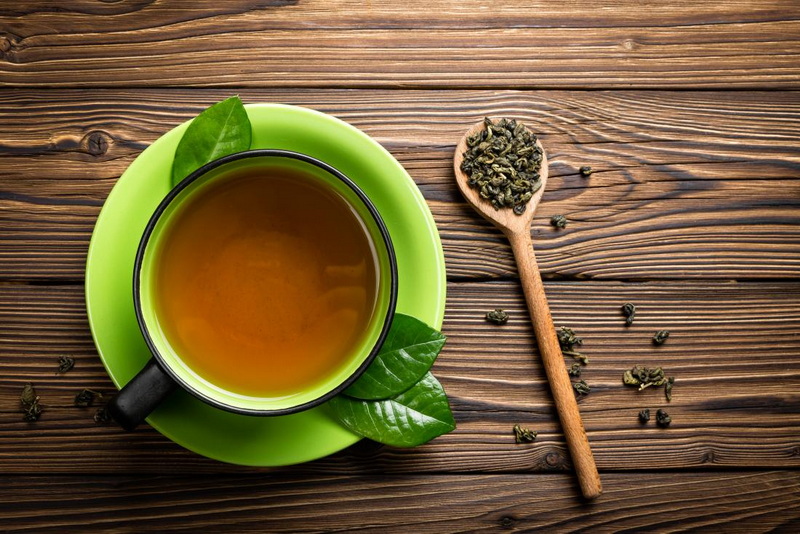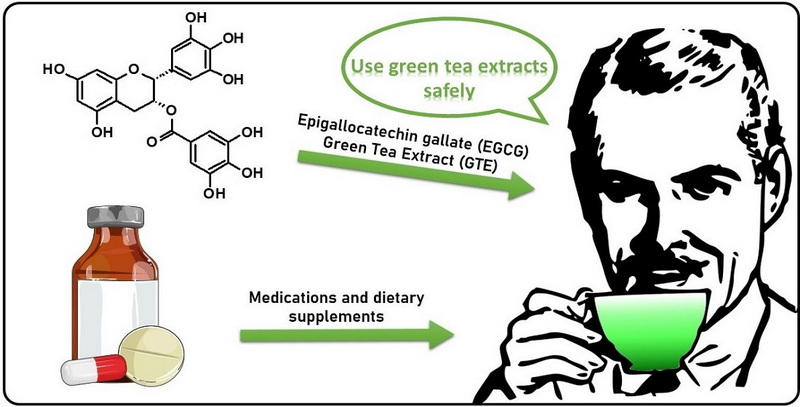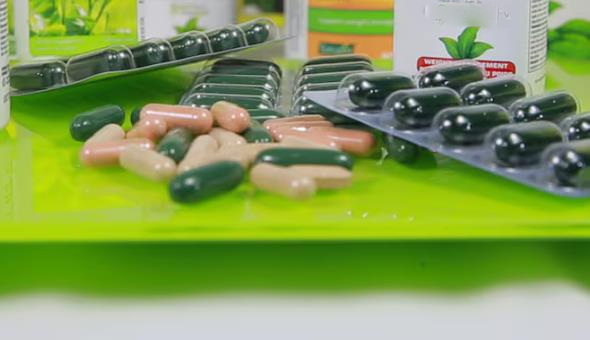Content Menu
● Understanding Green Tea Extract
>> Nutritional Profile of Green Tea Extract
● How Does Green Tea Extract Aid Weight Loss?
>> The Role of Exercise
● Scientific Evidence Supporting Weight Loss
● Practical Considerations
>> Potential Side Effects
● Incorporating Green Tea Extract Into Your Diet
● Lifestyle Factors That Influence Weight Loss
● Conclusion
● FAQ
>> 1. What is the best way to take green tea extract for weight loss?
>> 2. Can I drink regular green tea instead of taking supplements?
>> 3. Are there any side effects associated with green tea extract?
>> 4. How long does it take to see results from taking green tea extract?
>> 5. Is green tea extract safe for everyone?
● Citations:
Green tea extract has gained significant attention in recent years as a potential aid for weight loss. With its rich content of antioxidants and compounds like catechins, particularly epigallocatechin gallate (EGCG), green tea extract is often marketed as a natural supplement that can enhance fat burning and improve metabolic health. This article delves into the scientific evidence surrounding green tea extract's efficacy for weight loss, its mechanisms of action, and practical considerations for those looking to incorporate it into their weight loss regimen.

Understanding Green Tea Extract
Green tea extract is derived from the leaves of the *Camellia sinensis* plant, which undergoes minimal processing compared to other tea types. This preservation allows it to retain a high concentration of beneficial compounds, particularly catechins, which are known for their antioxidant properties. The most studied catechin in green tea is EGCG, which has been linked to various health benefits, including weight loss.
Nutritional Profile of Green Tea Extract
Green tea extract is not only rich in catechins but also contains other beneficial compounds:
- Caffeine: A natural stimulant that can enhance energy expenditure and fat oxidation.
- L-theanine: An amino acid that may promote relaxation without drowsiness, potentially counteracting some of the jittery effects of caffeine.
- Vitamins and Minerals: Green tea extract contains small amounts of vitamins like vitamin C and minerals such as manganese, which contribute to overall health.
How Does Green Tea Extract Aid Weight Loss?
The mechanisms through which green tea extract may promote weight loss include:
- Increased Metabolism: Green tea extract has been shown to enhance metabolic rate, leading to increased calorie burning. Studies suggest that the combination of caffeine and catechins can boost energy expenditure and fat oxidation.
- Fat Oxidation: Research indicates that EGCG can increase fat oxidation during exercise. This means that individuals who consume green tea extract may burn more fat during physical activity compared to those who do not.
- Appetite Suppression: Some studies have suggested that green tea extract may help reduce appetite, leading to lower calorie intake. However, results are mixed and require further investigation.
- Improved Insulin Sensitivity: Green tea extract may enhance insulin sensitivity, helping to regulate blood sugar levels and reduce fat storage.
The Role of Exercise
Incorporating exercise with green tea extract can significantly amplify its weight loss benefits. Studies have shown that individuals who combine green tea consumption with physical activity experience greater reductions in body fat compared to those who rely on diet or supplements alone. The synergistic effect of exercise and the compounds in green tea can lead to improved overall metabolic health.

Scientific Evidence Supporting Weight Loss
Numerous studies have explored the effects of green tea extract on weight loss. Here are some key findings:
1. Human Trials: A meta-analysis of 11 human trials found an average weight loss of approximately 1.31 kilograms in participants consuming green tea or its extracts compared to control groups. While this is modest, it suggests a potential benefit when combined with lifestyle changes like diet and exercise.
2. Animal Studies: Research involving mice on high-fat diets indicated that those consuming green tea extract experienced significant reductions in body weight and fat mass when combined with exercise. These findings suggest that the combination of green tea extract and physical activity may yield better results than either approach alone.
3. Dosage Matters: The effectiveness of green tea extract can depend on the dosage. Studies often use higher concentrations than what one would typically consume through brewed green tea. For instance, doses ranging from 300 mg to 856 mg of EGCG have been shown to produce significant effects in clinical trials.
4. Long-term Effects: Some research indicates that long-term consumption of green tea extract may help maintain weight loss after initial reductions. This suggests that it could be a valuable tool for preventing weight regain.
Practical Considerations
While green tea extract can be a helpful addition to a weight loss plan, it is not a miracle solution. Here are some practical tips for incorporating it into your routine:
- Choose Quality Products: Look for standardized extracts that contain a high percentage of EGCG (45-50%) and polyphenols (98%). This ensures you are getting an effective dose.
- Combine with Exercise: For optimal results, combine green tea extract with regular physical activity and a balanced diet. Exercise enhances the fat-burning effects of green tea.
- Monitor Caffeine Intake: Green tea extract contains caffeine, which can lead to side effects such as jitteriness or insomnia in sensitive individuals. Be mindful of your total caffeine consumption from all sources.
- Consult a Healthcare Professional: Before starting any new supplement regimen, especially if you have underlying health conditions or are taking medications, consult with a healthcare provider.
Potential Side Effects
While generally considered safe for most people, some may experience side effects from taking green tea extract:
- Gastrointestinal Issues: Some individuals report stomach upset or nausea when taking concentrated extracts on an empty stomach.
- Liver Toxicity Concerns: There have been rare reports linking high doses of green tea supplements to liver damage; however, these cases are typically associated with excessive consumption beyond recommended levels.
- Interaction with Medications: Green tea extract can interact with certain medications, including blood thinners and medications for high blood pressure. Always consult with a healthcare professional if you are on medication.
Incorporating Green Tea Extract Into Your Diet
To maximize the benefits of green tea extract for weight loss, consider these dietary strategies:
- Smoothies: Add powdered green tea extract or matcha into your morning smoothie for an antioxidant boost.
- Baking: Incorporate it into baked goods like muffins or energy bars for added health benefits without altering taste significantly.
- Soups and Broths: Mix powdered extracts into soups or broths for a unique flavor profile while enhancing nutritional value.
Lifestyle Factors That Influence Weight Loss
Weight loss is influenced by various lifestyle factors beyond just supplementation:
- Diet Quality: Focus on whole foods rich in nutrients—fruits, vegetables, whole grains, lean proteins—while minimizing processed foods high in sugars and unhealthy fats.
- Hydration: Staying adequately hydrated is crucial for metabolism and overall health; aim for at least eight glasses of water daily.
- Sleep Quality: Poor sleep can disrupt hormones related to hunger and appetite regulation; prioritize good sleep hygiene practices.
- Stress Management: Chronic stress can lead to overeating or unhealthy food choices; incorporating stress-reduction techniques such as yoga or meditation can be beneficial.
Conclusion
In summary, green tea extract shows promise as a tool for weight loss due to its ability to enhance metabolism, increase fat oxidation, and potentially suppress appetite. However, its effects are modest and should be viewed as part of a comprehensive weight loss strategy that includes diet and exercise. As research continues to evolve, individuals interested in using green tea extract should prioritize quality products and consult healthcare professionals for personalized advice.
Incorporating healthy lifestyle practices alongside the use of green tea extract can create a more effective approach to achieving sustainable weight loss goals while promoting overall well-being.

FAQ
1. What is the best way to take green tea extract for weight loss?
The best way is through standardized supplements containing 300 mg to 856 mg of EGCG daily, combined with a healthy diet and regular exercise.
2. Can I drink regular green tea instead of taking supplements?
Yes, drinking several cups of brewed green tea daily can provide similar benefits; however, you may need to consume more cups compared to concentrated extracts.
3. Are there any side effects associated with green tea extract?
Potential side effects include insomnia, jitteriness due to caffeine content, gastrointestinal issues if taken in excess, and rare cases of liver toxicity at very high doses.
4. How long does it take to see results from taking green tea extract?
Results can vary; some studies show noticeable effects within 12 weeks when combined with lifestyle changes.
5. Is green tea extract safe for everyone?
While generally safe for most people, individuals with certain health conditions or sensitivities should consult a healthcare professional before use.
Citations:
[1] https://www.medicalnewstoday.com/articles/320540
[2] https://www.psu.edu/news/research/story/research-suggests-green-tea-exercise-boost-weight-loss-health
[3] https://www.healthline.com/nutrition/10-benefits-of-green-tea-extract
[4] https://www.istockphoto.com/de/bot-wall?returnUrl=%2Fde%2Fphotos%2Fgreen-tea-extract
[5] https://www.youtube.com/watch?v=kmlcjBJ05Sk
[6] https://www.youtube.com/watch?v=otxM65Fy_Ec
[7] https://www.hollandandbarrett.com/the-health-hub/weight-management/weight-loss/can-you-drink-green-tea-for-weight-loss/
[8] https://pubmed.ncbi.nlm.nih.gov/26093535/
[9] https://health.clevelandclinic.org/green-tea-extract-a-better-way-to-boost-energy-or-not
[10] https://www.youtube.com/watch?v=52NyEflhXls






























